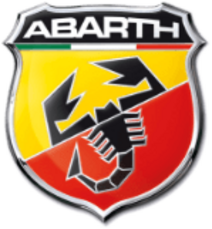
25 Car Insurance Jargon You Should Know About
With the cost of living rising, people are looking to save money on essentials including car insurance. However, choosing the right car insurance should be clear and straightforward. But sometimes it’s easy to confuse IPT with TPFT, or the FCA with the ABI.
Don’t worry we have unravelled a list of car insurance jargon, to help you make the right choice.
Association of British Insurers (ABI)
Many insurance companies are members of the ABI, but membership is not compulsory and the ABI is not a regulatory body.
Approved repairer
A garage is recommended by your insurance company for car repairs covered by your insurance policy.
Comprehensive cover
The highest level of car insurance cover, which usually covers you for:
- Injuries to other people
- Damage to other people’s property
- Accidents caused by your passengers or a driver named on your policy
- The use of a trailer, while attached to your car
- Fire damage and/ or theft
- Accidental damage to your own car
- Medical expenses, up to a stated limit
- Loss of or damage to personal effects in the car, up to a stated limit
Policy features vary between insurers, so always check them before you buy
Driving other cars (DOC)
Many insurers do not offer this as a standard policy feature, so make sure you are covered before getting behind the wheel of someone else’s car. It’s also worth noting that you usually get third-party-only cover when it is included.
Duty of disclosure
If you make any changes that affect your insurance policy you need to let your insurer know straight away. This can include changing your address, your name, occupation, or a medical condition. If there are any changes in your life, it’s always best to let your insurer know as it could affect your cover. If you have points added to your license for road traffic offenses such as speeding you must disclose these to your insurer.
Endorsement
A change made to an existing insurance policy during the term of cover that adds to or restricts the original cover terms.
Excess
The excess is the amount you must pay towards any claim. You can find the excess amount for your Scheme insurance on your certificate of motor insurance.
Exclusions
Insurance companies won’t pay out for certain risks or types of loss or damage. These exclusions will be clearly set out in your insurance cover booklet.
Fault claim
An accident or loss where you are considered to be blamed, or where you or your insurance company can not recover costs from somebody else.
Financial Conduct Authority (FCA)
The FCA regulates the financial services industry, the UK's financial watchdog, including insurance companies. If you have a complaint or concern, we encourage you to get in touch with us. However, the FCA can also advise you about making a complaint against an insurance company.
Indemnity
As an insurance policyholder, you are placed in the same financial position following a loss as you were before it. So, if your insurance company pays to repair your car following an accident. For example, you will be in the same financial position as you were before the car was damaged.
Insurance Premium Tax (IPT)
A tax on general insurance premiums, including premiums for car insurance. This tax is included in the price of your car insurance premium.
Insured value
The insurance company will pay the total amount for your car if it’s damaged beyond repair. This will either be the amount you stated the vehicle was worth when taking out the policy or the current market value at the time of the claim – whichever is lower.
Knock-for-knock
An agreement between motor insurers to cover the costs of damage to their own policyholders’ car regardless of which driver is to blame, however, you would still need to pay the excess.
Material fact
Any information that may influence either an insurer’s decision to offer you cover or the premium they charge for it. If you leave out information that may influence a decision to offer cover, your policy may be invalidated.
No claims discount (NCD)
For each year you drive without making a claim on your insurance you get a year’s no-claims discount, subject to a maximum. This discount usually reduces the cost of your car insurance premium for the following year. Also described as no claims bonus (NCB).
Non-fault claim
With a non-fault claim your insurer can recover the cost of the claim from someone else.
Points
Should you be convicted of a motoring offense, such as a speeding offense, a number of points will be added to your license. You have a duty to inform your insurers of any points on your license.
Settlement
The amount your insurer pays out for a claim
Thatcham Research
The Motor Insurance Repair Research Centre (Thatcham Research) carries out research for the motor insurance industry on the cost of car repairs and vehicle security.
Third-party only (TPO)
Third-party cover is the minimum level of car insurance cover required by law and contains no cover for damage to your vehicle. It usually covers your legal liability for:
- Injuries to other people
- Damage to other people’s property
- Accidents caused by your passengers or a driver named on your policy.
Third-party, fire, and theft (TPFT)
Third-party fire and theft cover provides the same level of cover as third-party cover, but also protects you against damage to your vehicle from fire, or theft of the vehicle, as long as you are not at fault.
Total loss/ Write-off
In insurance, a total loss or write-off is when an insurer deems the repair cost of a damaged car exceeds the value of its policy.
Uninsured losses
Any losses not covered by your insurance policy, such as your policy excess; any out-of-pocket expenses following an accident, for example, a loss of earnings; or compensation for an injury suffered in an accident.
Uninsured loss recovery (ULR cover)
Help recover your uninsured losses from a third party, where an accident is the third party’s fault.








